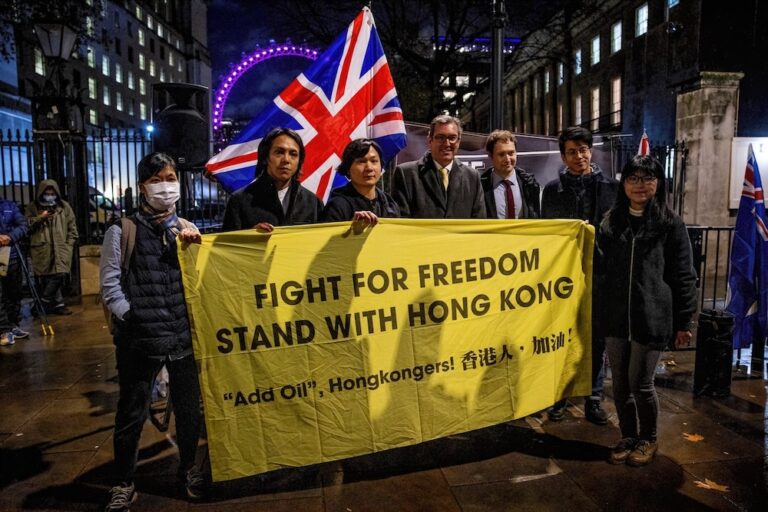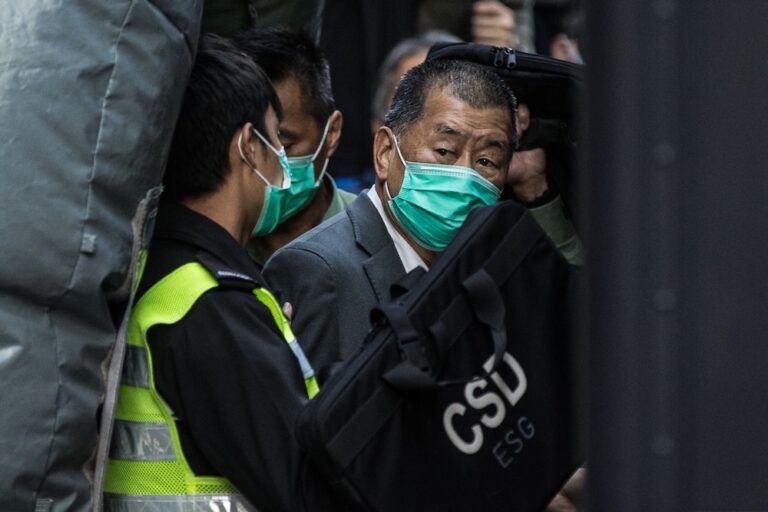There are concerns that the new government will impose more restrictions on the media, that there will be heightened pressure from Beijing's Liaison Office in Hong Kong and that Mr Leung Chun-ying's government may legislate Basic Law article 23 national security legislation.
(HKJA/IFEX) – Hong Kong journalists have expressed serious concern about the effect that the new chief executive, Leung Chun-ying, will have on press freedom. They also reported that press freedom had declined under Donald Tsang. These were the main findings of a survey conducted by the Hong Kong Journalists Association (HKJA) in April 2012. The results were published in the HKJA’s 2012 annual report on freedom of expression, which was released today (July 2nd) – one day after Hong Kong marked the 15th anniversary of the 1997 handover.
The survey found that 60 percent of 663 respondents thought that press freedom would be restricted to a greater or lesser extent during Leung Chun-ying’s administration. They were in particular worried that the new government would impose more restrictions on the media, that there would be heightened pressure from Beijing’s Liaison Office in Hong Kong and that Mr Leung’s government would legislate Basic Law article 23 national security legislation.
They called on Mr Leung to refrain from legislating national security laws until universal suffrage is in place, improve the way that spot news is disseminated, draft a freedom of information law and provide less official footage and hold fewer off-the-record briefings.
These – apart from national security legislation – are all problems that arose during Donald Tsang’s seven years as chief executive. The views of survey respondents on Mr Tsang’s approach to press freedom are highlighted in the report. Fully 87 percent of respondents thought that Hong Kong now enjoys less freedom than when Mr Tsang first became chief executive in 2005. They pointed in particular to tighter government control over the flow of information, self-censorship in the industry and interference from the government in Beijing or from Beijing’s Liaison Office.
Respondents were particularly worried about the suppression of press freedom during the visit to Hong Kong of vice-premier Li Keqiang in August 2011 and infringement of press freedom during the chief executive election in the first quarter of 2012. They were also concerned about Liaison Office pressure on the Hong Kong Economic Journal over its election coverage, and the move by the Sing Pao newspaper to alter a column written by commentator Lau Yui-siu.
The HKJA’s 2012 annual report covers all these issues, giving details of how they have eroded press freedom in Hong Kong. It examines possible threats from Leung Chun-ying, even though he has signed an HKJA press freedom declaration. The report also covers Donald Tsang’s legacy in the area of press freedom, as well as dangers from a proposed anti-stalking law, the failure of the government to endorse the issue of new free-to-air TV licences, the appointment of an administrative officer and the sacking of two phone-in hosts at RTHK, and the controversy over ATV’s false report on former president Jiang Zemin’s death. The final chapter examines disturbing developments in Hong Kong’s neighbour, Macau.


